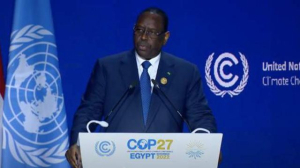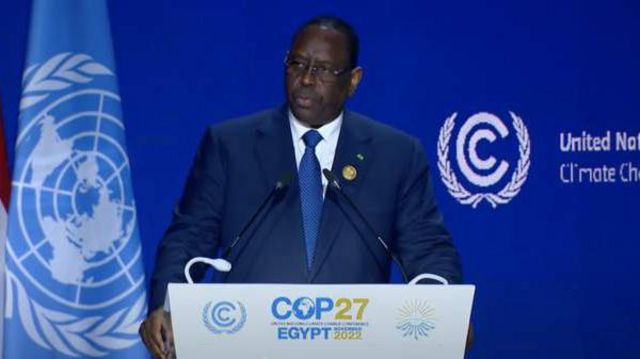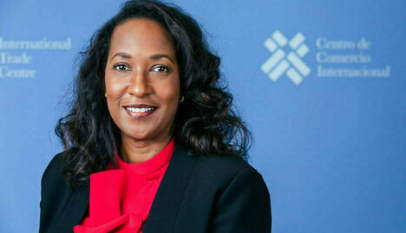COP27: Beyond the euphoria, lets negotiate well for Africa, By Abideen Olasupo
The 27th United Nations Climate Change Conference of Parties (COP27) is currently underway in Sharm El-Sheikh, Egypt, with an estimated 5,000 delegates in attendance, including 120 world leaders, climate activists, and youth representatives.

For the 27th time, world leaders at COP27 are sharing more plans towards mitigating climate change disasters as well as outlining a road map for keeping the earth at a temperature of below 2 degrees. Alongside other global leaders, African leaders are expected to negotiate for just and equitable funding for climate mitigation through an African lens.
COP27, therefore, represent a crucial opportunity for Africans to make serious demands reflecting Africa’s multitudes of climate change-related challenges. Although climate change is a global phenomenon, Africa is disproportionately affected by it – even though it is responsible for a mere 2-3% of greenhouse emissions. With recent disasters ranging from hunger and famine in Madagascar to this year’s flood that displaced 1.4 million people in Nigeria, Africa is grossly unprepared.
A recent report by the World Meteorological Organisation shows East Africa has suffered below average rainfall for four consecutive wet seasons – the longest in 40 years. As a result of persistent drought and other compounding factors, an estimated 18.4 to 19.3 million people across the region were faced with food crisis or worse levels of acute food insecurity.
Hence, humanitarian agencies are warning that another below-average rainy season will likely result in crop failure and further exacerbate the food insecurity situations in Kenya, Somalia, and Ethiopia. Similarly, the report reveals the Southern Africa region suffered a series of cyclones at the start of the year, with Madagascar being the hardest hit with torrential rain and devastating floods.
COP27 is not just the fifth COP happening in Africa. Rather it is tagged as the “African Cop”. Hence, Africa need to be strategic in its negotiations at the Conference. That is to say, beyond the euphoria around COP27 taking place in Africa, the most important question remains whether or not Africa’s climate needs will be high up on COP27’s agenda?
What did COP26 achieve for Africans?
During a 2021 panel discussion by the African Center for Economic Transformation (ACET) and the African Union Development Agency (AUDA-NEPAD) themed; ‘Climate Change: Securing Africa’s Future’, the Glasgow (COP26) Climate Pact was reviewed vis a vis Africa’s progress in mitigating the impacts of climate change. The outcome of the discussion showed a vast margin between Africa’s expectations and reality.
The $100 billion dollars a year pledged by wealthy nations to the Paris Agreement is not enough to offset greenhouse gases and keep the earth below 1.5 degrees. Yet, developed countries have not been able to come through with that commitment, even though the time frame for execution was 2020. Two years behind time, climate financing has to be a priority discussion at COP27.
According to Power Shift Africa, in the last decade, Least Developed countries (LDCs) have spent an average of 14% of their domestic revenue on interest payments, compared with 3.5% in developed countries. This constrains the countries’ ability to invest in public services, climate financing and worsens their credit ratings, making it harder to attract foreign investments.
What does Africa expect from COP27?
Every corner of Africa is filled with climate disasters; the continent is worst hit by carbon dioxide emissions from the developed countries. It is therefore time to demand a roadmap for climate justice. The UN Secretary-General, Antonio Guterres, has said that the fight to defeat climate disasters and to have a liveable planet must be won this decade. COP27 is a reminder of that crucial commitment.
We can’t afford to continue like this. Let the action commence. African countries need to put their money where their mouth is; otherwise, this coming disaster will not spare any of us. Since the superpowers are struggling to fulfil their pledges, Africans must not forget to demand for what is their legitimate right in Sharm El Sheikh.
Abideen Olasupo is a young Nigerian climate justice activist. The views expressed in it are the author’s and do not necessarily reflect African Newspage’s editorial policy.














